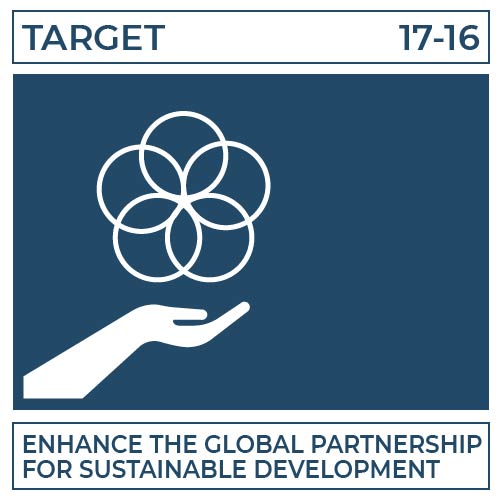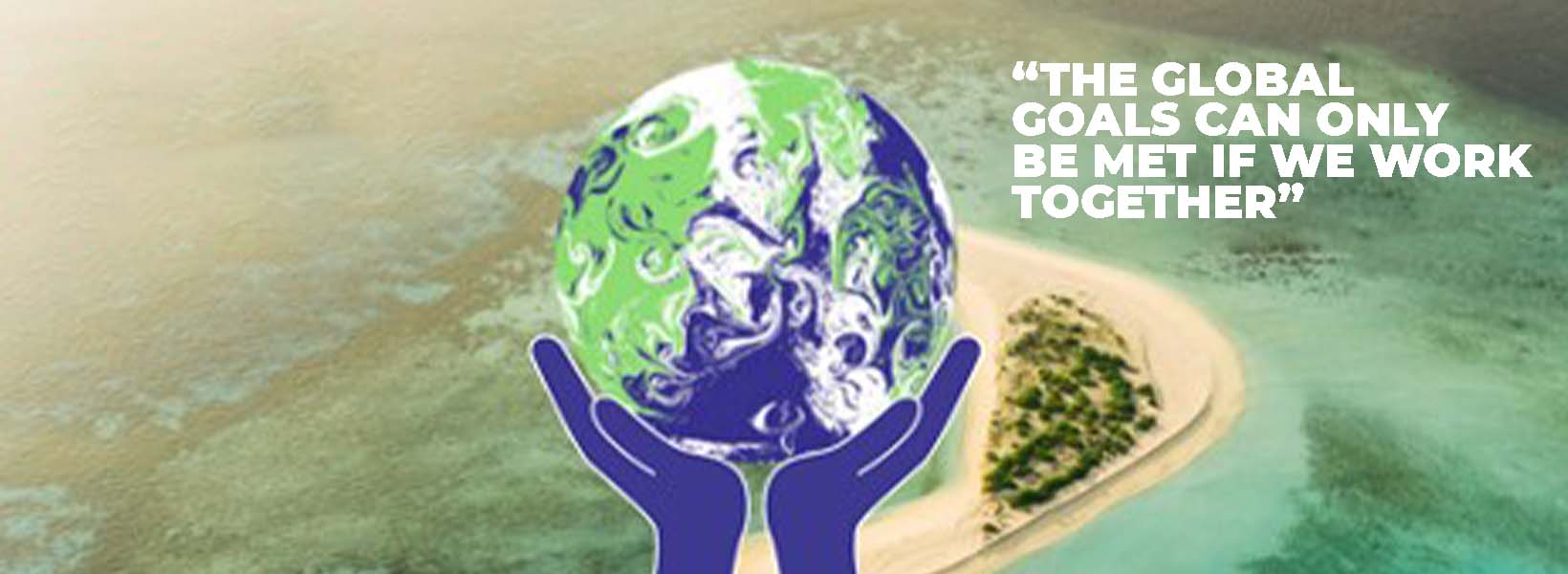Introduction
Since its inception, Island Innovation has strived to foster a platform where islands around the world, no matter the size or political status, can come together to create positive change in their communities and create a world that is more resilient and united. The Island Innovation team is extremely proud of the accomplishments and support of our global community of more than 130,000 island stakeholders, and we are ecstatic to see that our network continues to grow.
Global partnerships are arguably the most vital component in creating change and ensuring the success and implementation of the Sustainable Development Goals (SDGs) for islands. In honor of our 100th newsletter this week, we would like to highlight the importance of global partnerships and SDG17.
What is SDG17 – Partnership for the goals?
The last SDG as part of the 2030 Agenda focuses on “Partnership for the Goals.” SDG17 aims to strengthen the means of implementation and revitalize the global partnership for sustainable development.
What does Global Partnership Actually Mean?
The concept of global partnership has existed for decades. The 2006 General Assembly resolution “Towards global partnerships” defined these partnerships as voluntary relationships between various public and non-public parties, in which all participants agree to work together to achieve a common purpose or undertake a specific task.
This can involve actions at the international organizational level, such as treaties or resolutions agreed by and between countries, information sharing through private partnerships and events, or the work of NGOs and community organisers at the grassroots.
To achieve all 17 SDGs, global partnership must involve multi-stakeholder engagement across a variety of sectors including capacity development, finance, science and technology, trade, and education, to name a few. While the size of a particular partnership can be important in specific circumstances (such as international treaties), what is most vital are the mechanisms by which partnerships are facilitated, such as ensuring the inclusion of all relevant parties in decision-making, and the level of consistency between parties to ensure that goals and targets are fully realized.
Target 17.16
While all targets of the SDGs are critical in creating resiliency and fostering change, target 17.6 stands out as particularly paramount in the achievement of SDGs worldwide and on islands. The goal of this target is: “Enhance the Global Partnership for Sustainable Development, complemented by multi-stakeholder partnerships that mobilize and share knowledge, expertise, technology and financial resources, to support the achievement of the Sustainable Development Goals in all countries.”

Why are global partnerships essential for islands?
With relatively limited natural capital, smaller economies, and remote geographies, it can be more challenging for islands to grow and manufacture essential goods, generate sufficient energy for self-sufficiency, and finance community development projects. Thus, global partnership for islands is essential to their future survival, developing resilience, and achieving sustainable development across all sectors.
Islands are home to some of the world’s most biodiverse and culturally rich places in the world and with the increasing international threats such as climate change and the current global pandemic, islands are often the first places to feel the negative effects, such as sea level rises, marine pollution and coastal degradation, increased intensity of weather events, and loss of tourism-based livelihoods due to travel restrictions.
How can islands participate in global partnerships?
[/vc_column_text][vc_column_text]Islanders around the world are leading the charge in generating positive change globally and in their communities. There are many ways islanders can get involved in global partnerships. Reach out to a regional or international NGO about any volunteer opportunities, attend a virtual event to learn more about other islands and the similar challenges they may face, write to your local government about an issue you want to bring to their attention, or start your own initiative. No effort is too small!
Upcoming Global Partnership Events for Islanders
Island Finance Forum 2022

This April, Island Innovation will be hosting its second Island Finance Forum! The event brings together senior financiers, development partners and regulators to share and exchange expertise on sustainable and inclusive financial structures in island communities. The Forum aims to bridge the gap between sustainable development practitioners and financial stakeholders; help island stakeholders access expert knowledge and financial opportunities available to them; and showcase the economic opportunities available from investing in the sustainability sector on islands – particularly impact investing and ESG.
Virtual Island Summit 2022

Last year’s Virtual Island Summit (VIS) was a huge success with over 11,000 attendees! The summit is a unique and totally free experience where you can learn from world-leading experts from diverse backgrounds about the latest projects being deployed in island communities, with applications far beyond. Each session will be interactive with opportunities to ask questions and make connections. This year we are expanding to have even more features and especially networking opportunities with representatives of over 500 islands!
The High Ambition Coalition for Nature and People (HAC)
The HAC is an intergovernmental group of 70 countries championing a global deal for nature and people with the central goal of protecting at least 30 percent of the world’s land and ocean by 2030. This group has created a target titled 30×30 which aims to halt the accelerating loss of species, and protect vital ecosystems that are the source of our economic security by having at least 30% of the world’s land and 30% of the ocean be internationally protected. For islands, the ocean and natural land are vital to their economic and cultural survival. Islands rely on marine resources and land for food and sources of economic development; they are also a rich source of islanders cultural and natural heritage. Without adequate protection of these natural environments, islands will face a devastating risk in loss of their livelihoods and culture.

Conclusion
Islanders have a unique sense of connectedness to their natural surroundings and understand the tough realities that correspond with an increasingly globalized and warming planet. Achieving SDG17 is no easy feat, but if islands are able to come together and share their experiences, knowledge, and best practices, then we are one step closer to creating a world that is more resilient, innovative, and harmonious.
We would like to take this milestone 100th newsletter as an opportunity to thank everyone in our network for the continued support and collaboration in Island Innovation’s work, events, and outreach. We are excited to see what this year has in store for us and to continue growing this incredible community of global island stakeholders.



